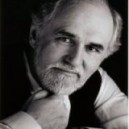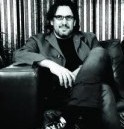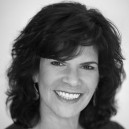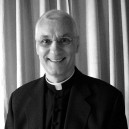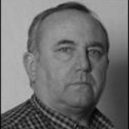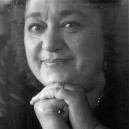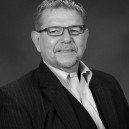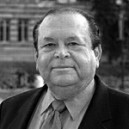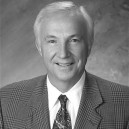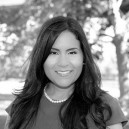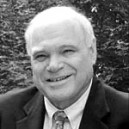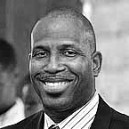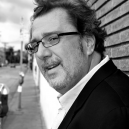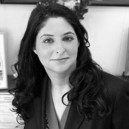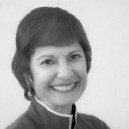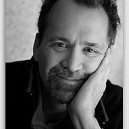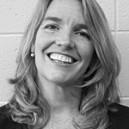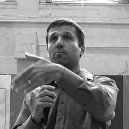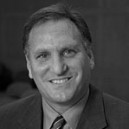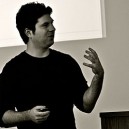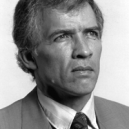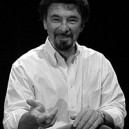Dr. Les Aria
Rehabilitation Psychologist
Sacramento Rehabilitation Psychologist Dr. Les Aria has a message for those who might be tempted to believe that rehabilitation psychology is really only counseling work. He explains that to be the best at rehabilitation psychology means going beyond just counseling.
"You will need to integrate EMDR, Hypnosis, Biofeedback, and to really truly grasp Cognitive Psychology," Aria said. "Those things will really help make you a great Rehabilitation Psychologist."
In his decade-long career as a psychologist with a specialization in Pain Management and Rehabilitation Psychology, it is safe to say Aria knows a thing or two about the field and what it takes to be successful. So we decided to pick his brain on the subject and he obliged. Enjoy!
What lead you on the path to pursuing an education in psychology?
When i was an undergraduate at Santa Clara University, I was a double major in Biochemistry and Psychology. I had this one professor in my Gerontology class, and she said that getting into a medical school -- or any type of PHD program -- was pretty much impossible. So she said not to worry about any of that, and to just go get a job.
I took that as a challenge and I applied to law school, dental school, and medical school. And sure enough, I got into all of them. So thanks to her telling me that I couldn't get into those schools, it actually challenged and propelled me to where I am today. To tell you the truth, I feel like getting into those schools is hard, but once you're in, they are actually fairly easy.
How did you come to the conclusion that you wanted to become a Rehabilitation psychologist?
I went to the University of Chicago Medical school, because that was what everyone told me I should do -- go to medical school. So I entered the MD program and also opted to get a PHD at the same time. While in medical school, one year you do medical school and the next year you do the graduate school, the PHD program. So somewhere halfway through my third year doing my clerkship in medical school, I realized that medical school is great. It's not so hard if you can memorize and regurgitate information, but psychology was much harder, you can't regurgitate psychology.
Part of the program was to turn yourself over to counseling, or psychotherapy. So while I realized by going to counseling that I was doing what everyone wanted me to do. I realized I was living a life of lies. I was just kind of being a robot, doing what was the best thing for myself to do, doing what people thought was the right thing for me to do, but not necessarily doing what I wanted to do.
So I had an epiphany and decided I needed to be a psychologist.
So far have you enjoyed your career as a psychologist?
Let's put it this way, it's a career, not a job. It's more of a hobby than anything else. I love it. What better job can you have than getting into people's business? One day is never the same as the next. The most important thing is that I love when people come into my practice and they don't believe in some form of psychology. They often believe that psychology is just for the weak people.
So there is this skepticism, and what I like to do is ask my patients once they are better to send me emails, and they get better, and so I'm creating a sort of database of emails. I'm working on a manuscript, and I want to include these so that people realize this stuff really works. I really enjoy making people better.
If you had to describe rehabilitation psychology to someone who had no idea what rehabilitation psychology is, how would you describe it?
Rehabilitation psychology is a very broad area of study. It has to do with physical conditioning of someone through the mind. Basically someone who has a spinal cord injury, someone with chronic pain, or someone with a brain injury. We use the counseling part to help someone who is struggling with something physical. So basically, psychologically, rehabilitating someone with a medical condition.
And so far in your practice you have been witness to this kind of psychology helping people?
Absolutely. That's the thing with rehabilitation psychology, this field can focus on the spine, neurologic issues, and what I chose to specialize in, which is pain. It sounds funny, but that's why I collect emails. I see patients all the time that come in and say the doctor says the injections aren't working, the medicine isn't working, there's nothing that can be done. I love those patients. I love to decrease their pain and or get rid of their pain because I know I can help.
So how did you come to specialize in Rehabilitation Psychology?
You need your PHD. There are two ways to get into this field; you can either apply for a clinical psychology doctorate program or a counseling psychology doctorate program. Those are two very different schools of thoughts. One is very clinical and one is purely counseling. During that time period the doctoral programs will expose you to various areas of psychology called "Practicums".
In one of my practicums I got exposed to chronic pain, and I actually said, 'those are the people I don't want to work with.' Mostly because they were complex and confusing, and it just didn't seem like a good fit for me at the time. But as I read more, I realized that I really wanted a challenge, that pain was a lot more difficult to treat than anxiety and a lot of other psychological cases. So after that, I applied to a residency program or an internship. I mainly worked with phonetic patients in general, with a sub-specialization in chronic pain.
Most doctorate programs will require you to have a training like that, which will help you to specialize. Then you enter a fellowship for two years after which you decide your specialty. My two specialties were Chronic Pain and Neuroscience.
On an average day from start to finish what is the day of a Rehabilitation Psychologist?
It usually starts with consultations from primary care doctors. Different consultations require different things. For my practice for example, I will go through referrals that come to me electonically or get faxed to me. It's usually a phone call that starts with me talking to the primary doctor or surgeon and they address the problem with me and then I contact the patient. Once my full day starts I do nothing but seeing patients all day. In the mornings I do individual consultations and then, in the afternoons, I do groups. The groups focus on how to manage the pain problems or their depression -- really anything to offset the medical condition. And then lastly, the third part of my day is just consultations with hospitals.
What would be the most optimized education to pursue to become a Rehabilitation Psychologist?
Definitely a doctorate. PHD is the classic route and the PsyD is a new form of doctorate and it's more clinically focused. You can get the PsyD done in about 3-4 years whereas the PHD takes more like 5-6 years to complete. To be successful, a doctorate is essential. Then you need to focus on the getting a good fellowship or training that specializes in rehabilitation psychology and or a sub-specialty.
What are a few of your favorite things about Rehabilitation Psychology?
Taking someone that doesn't believe in psychology interventions, and showing them what we can do to help them.
What are two challeges or dislikes about your career field?
It sounds cheesy, but I really don't have any. If anything, I just dislike that more people don't know more about it. I would like it if physicians understood the field better, so that we could help more people.
If a student wanted to become a rehabilitation psychologist what are some of the qualities they should try to develop to be successful?
The number one quality would be empathy. Not sympathy, empathy -- being able to put yourself in someone else's shoes is very important.
Number two would be developing an analytic mind. Not concrete regurgitations but developing the ability to think and to integrate information, it's called diverging and converging information.
Third would be to challenge yourself and grow continously, because the complexity of rehabilitation psychology is really profound.
Do you see the field changing and what should we expect in the future?
I do see it changing. I think we're entering a new millenium of mind-body integration. So there is this new acceptance of other forms of medical interventions. And now medical intervention is starting to include counseling more and more so I see the field of medicine and psychology starting to converge in that sense.
Do you have any advice for future students?
Call your local CPA (California Psychological Associations) find people in your area that specialize in rehab psychology, neuro psychology, or pain psychology, and actually talk to them and ask them if they would be interested in mentoring. I would say write them, because that is how you get into the field and get to really take a look at it.
For more information about what exactly a rehabilitation psychologist does and how to become one, please feel free to visit our Rehabilitation Psychologist page in the careers section of our website.













